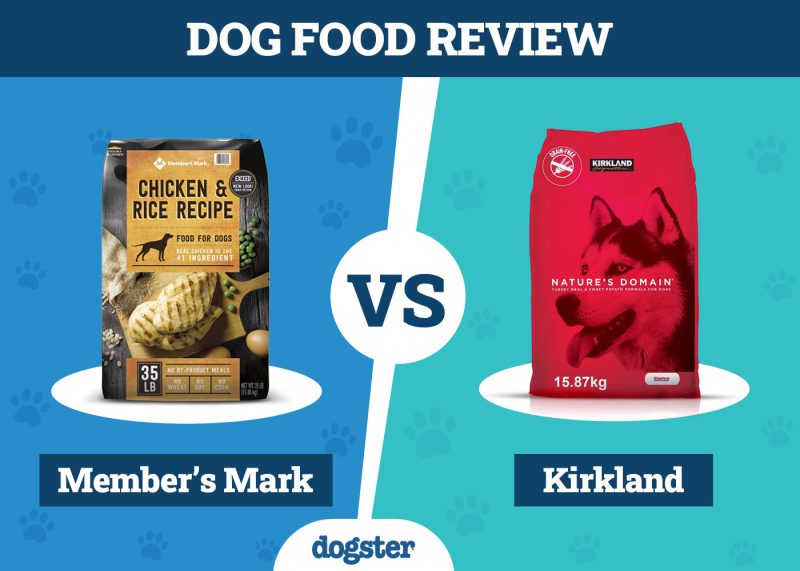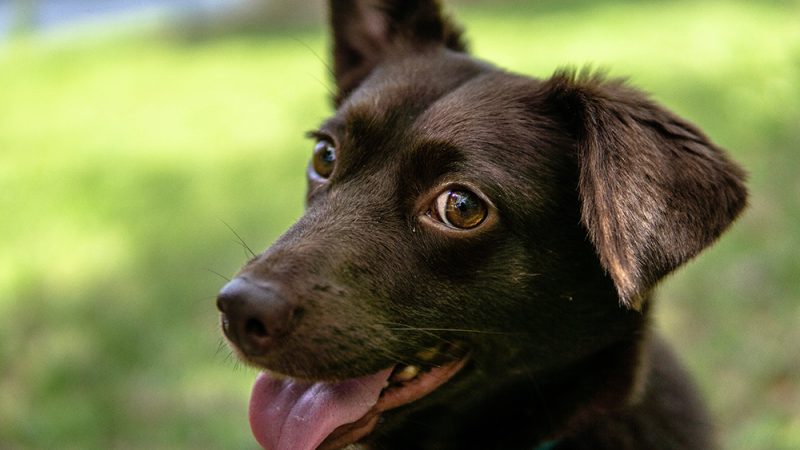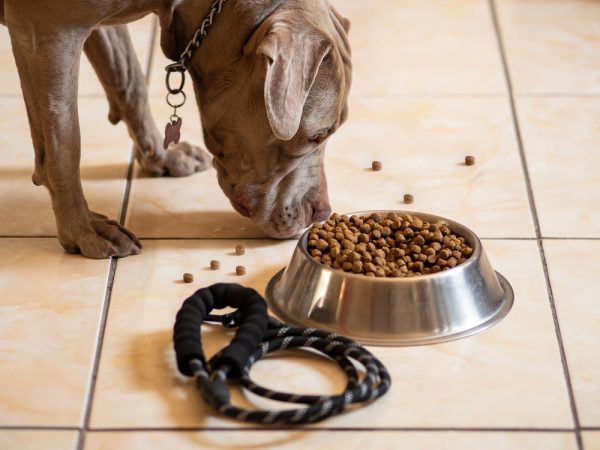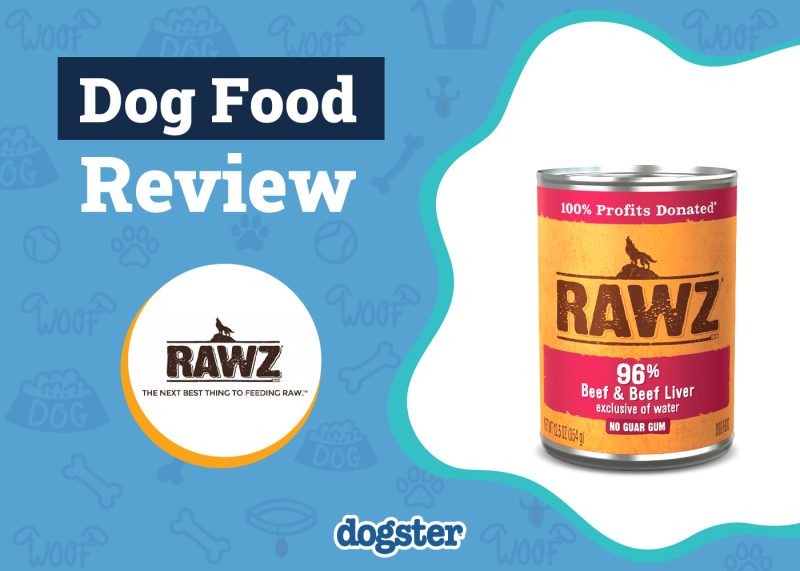With numerous high-profile athletes and celebrities being vocal about eating gluten-free, it’s no wonder the diet remains popular among humans. But have you ever wondered if a gluten-free diet is right for your dog? While dogs can be allergic to gluten, it is rare, and accurately diagnosing the sensitivity can be complicated because signs often mimic other conditions.
In this article, we’ll cover the facts about gluten allergies in dogs, including how they’re diagnosed and what signs you might notice if they’re present. We’ll also offer guidelines on when a gluten-free diet might be appropriate for your dog and how to choose the right one.

What Is Gluten?
Gluten is a blanket term that refers to various proteins found in grains. Gluten is what gives foods made with grain a chewy texture. While all grains contain gluten, corn and rice gluten are usually excluded from the narrative because they’ve not been associated with human or canine disorders.
Generally, gluten from oats, rye, barley and wheat cause all the problems in people with sensitivities. In humans, gluten typically causes either an allergic reaction or an autoimmune response, such as celiac disease. When people with celiac disease eat gluten, their body responds by attacking their own intestines, leading to malabsorption and diarrhea, amongst other things.
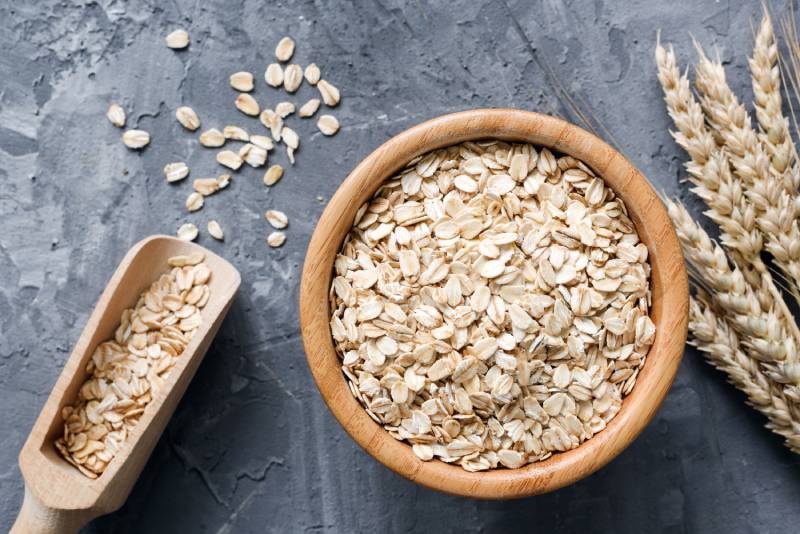
How Does Gluten Affect Dogs?
While research is ongoing, we don’t know nearly as much about how dogs react to gluten as we do in humans. However, science has identified some specific ways that gluten affects dogs.
Wheat Allergies
While food allergies and sensitivities can be triggered by any ingredient or additive in a dog’s diet, most are caused by proteins. Animal proteins, particularly poultry-based proteins (chicken, duck, turkey) are by far the most common allergies we see, but wheat gluten (plant protein) certainly can also be a source of food allergies in dogs. Other less common allergens are beef, pork, lamb, dairy, eggs and soy.
Digestive Issues in Irish Setters
Several studies suggest that Irish Setters have a naturally occurring enteropathy or intestinal irritation that may be related to gluten sensitivity. Irish Setters with this condition experience chronic weight loss and digestive signs like vomiting and diarrhea. While the signs are like those of people with celiac disease, research has yet to prove conclusively that that’s what these dogs are experiencing.
Neurologic Condition in Border Terriers
Research also indicates that gluten may play a role in a neurological condition called Paroxysmal Dyskinesia (PD) specifically seen in Border Terriers. Dogs with PD experience tremors or involuntary movements that look like seizures, but the animal remains conscious throughout and returns to its normal self immediately after the episode. These movement disorders are thought to be triggered by excitement or stress.
Several small or medium-breed dogs are known to suffer from PD, but gluten seems to be an issue only in Border Terriers, possibly due to genetics.

What Signs Will You See If Your Dog Is Allergic to Gluten?
Any food allergy or sensitivity in dogs can present with various signs. Some of the most common include:
- Scratching
- Skin and ear problems, e.g. hotspots and recurrent infections
- Chewing/licking the paws
- Vomiting
- Diarrhea
- Weight loss
Irish Setters with gluten sensitivity will likely present with digestive signs. Border Terriers with PD may display several neurologic signs, including muscle twitching, tremors, and falling over.

How Are Gluten Allergies in Dogs Diagnosed?
Unfortunately, accurately diagnosing a gluten allergy in dogs can be time-consuming, tricky, and often expensive. Many of the signs are non-specific, meaning they can indicate a whole host of medical conditions. Even the neurological signs noted during PD occur in other brain and nerve conditions.
Blood Tests
Before arriving at a gluten allergy diagnosis, your vet and possibly even a veterinary specialist may need to rule out other diseases or disorders first. Allergies to environmental allergens such as pollen or dust is known as atopy. Blood tests can be helpful in helping to work out what environmental allergen your dog is allergic to, but unfortunately atopy is a diagnosis of exclusion and no single diagnostic test definitively diagnoses it. Blood tests are even less reliable when looking at food allergies. The most accurate way to diagnose a food allergy is by performing an elimination diet trial.
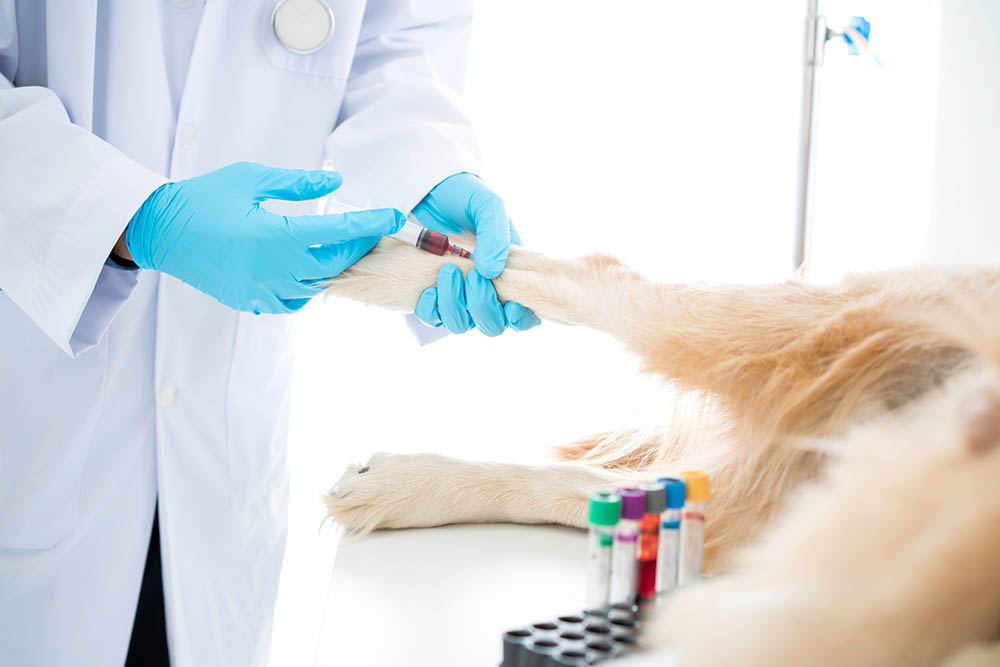
Elimination Trial
For these trials, the dog eats exclusively hypoallergenic, hydrolyzed food for 8-12 weeks. A hydrolyzed food is one where the proteins have been broken down into the smallest possible particles, meaning that the immune system doesn’t react to them.
If the dog’s signs resolve, a vet will have you feed your old food again to see if they return. When they do, it means your dog probably has a food allergy. If you truly want to find out exactly what your dog is allergic to, you will have to introduce specific potential allergens one at a time to determine what they react to.
Wheat gluten is just one of many possible allergens in most dog foods, and the elimination process may take time. Again, you can opt for a blood test, but you should discuss this with a veterinarian, as these blood tests are not very accurate for food allergies and are often costly.
Further Testing
Border Terriers with suspected PD may need to visit a veterinary neurologist for tests such as an MRI (to rule other possible causes out) and more specialized blood tests to receive an official diagnosis. Irish Setters with gluten sensitivity may need a referral to a veterinary internal medicine specialist for various advanced tests before reaching a diagnosis.
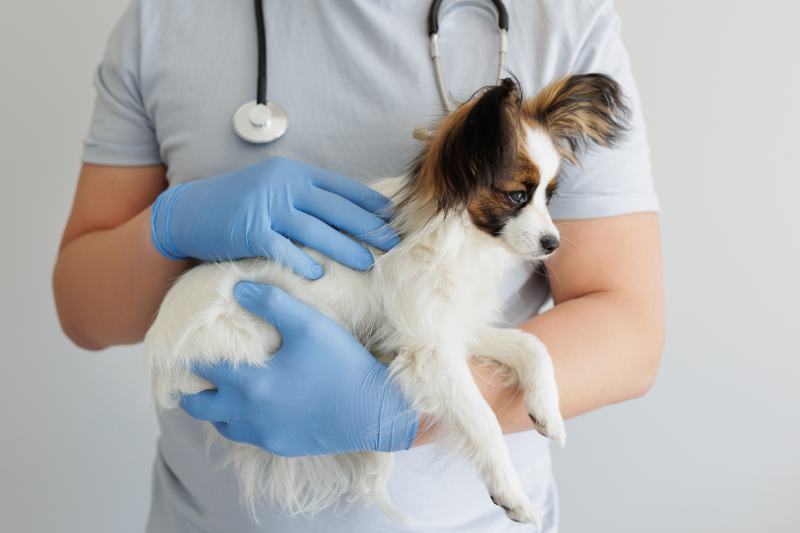

When Should Dogs Eat a Gluten-Free Diet?
Typically, there are two scenarios where dogs should eat a gluten-free diet. One is if they’ve been diagnosed with gluten allergies or one of the other medical conditions we discussed. The other is if the dog’s owner has celiac disease or another gluten sensitivity. People who are extremely sensitive to gluten may develop symptoms from handling their dog’s food.
Outside of these scenarios, gluten-free dog food isn’t likely to have any major health benefits and will cost you more money. It is a better idea to save that money and spend it instead on a higher quality dog food for your pup. You should always discuss any diet changes with a veterinarian before switching.
If you need to speak with a vet but can't get to one, head over to PangoVet. It's our online service where you can talk to a vet online and get the personalized advice you need for your pet — all at an affordable price!

How to Choose a Gluten-Free Diet for Your Dog
Several pet food brands now produce gluten-free diets. However, because there are no established standards for quality control in gluten-free pet food, not every formula is created equal, a vet can help you evaluate any over-the-counter brands you might be considering.
Another option is to try a prescription hypoallergenic or gluten-free diet, which undergoes more rigorous testing and feeding trials. Again, a vet can help you evaluate the options available to find the best choice for your dog.
Once your dog is placed on a gluten-free diet, it’s vital that you strictly manage what they eat. Any treats or extra foods need to be approved by a veterinarian so you don’t accidentally trigger your dog again.

Summary
Gluten-free diets may be all the rage, but that doesn’t mean they are automatically the cure for what ails your dog, nor is gluten always responsible for all their health troubles. Based on current research, dogs can be allergic to gluten, and it may also be responsible for other health issues in Irish Setters and Border Terriers. Because gluten allergies and sensitivities often have the same signs as other conditions, you’ll need to see a vet to diagnose them accurately. Until you do, don’t assume changing your dog’s diet will improve their quality of life and if you do change your dog’s diet, make sure you do it gradually, over the course of two weeks.
See also:
- Can Dogs Be Allergic to Humans? The Surprising Vet Answer
- Gluten Intolerance in Dogs: Vet-Verified Signs, Causes & Care Guide
Featured Image Credit: Vladislav Noseek, Shutterstock




